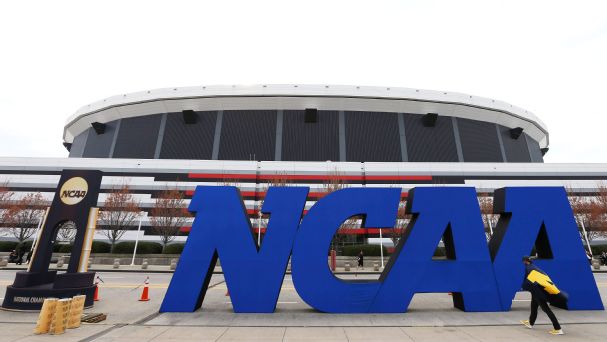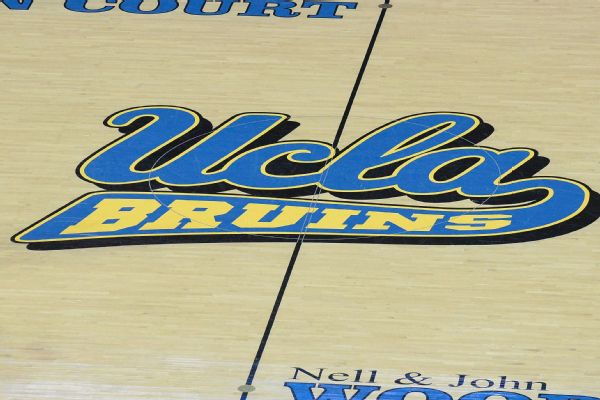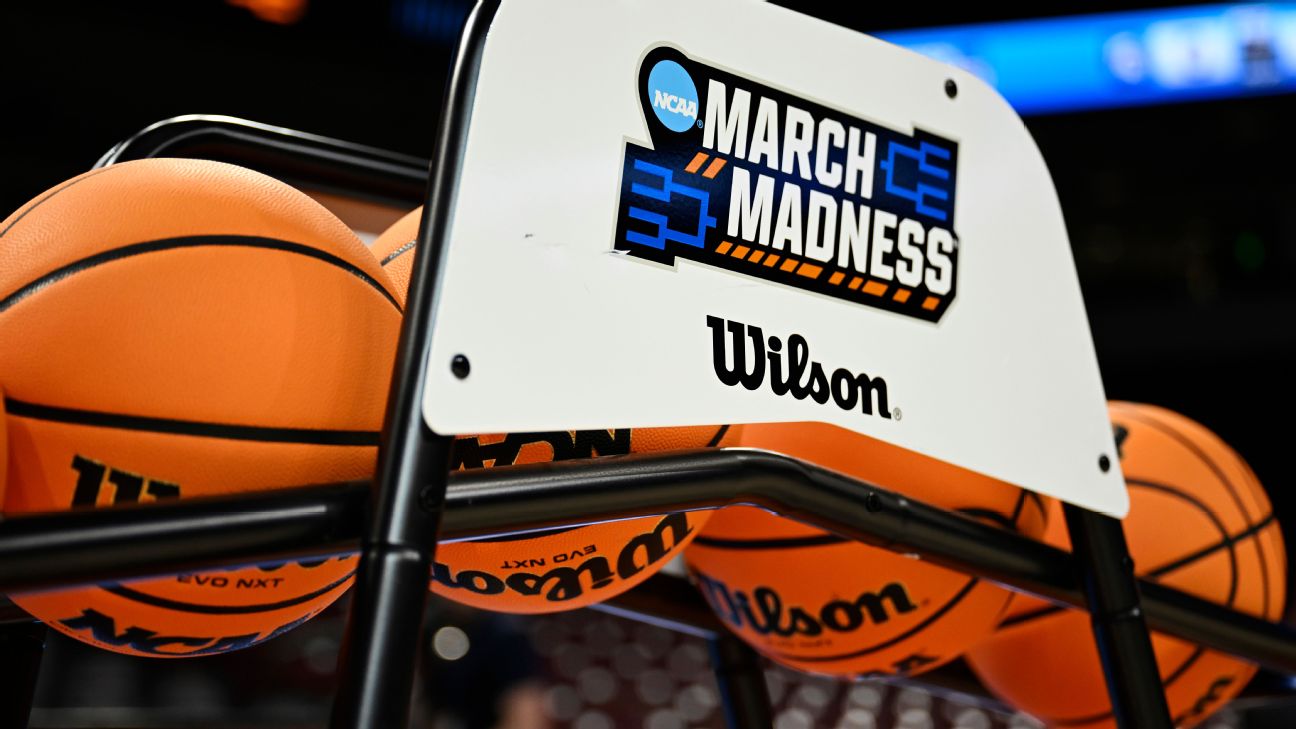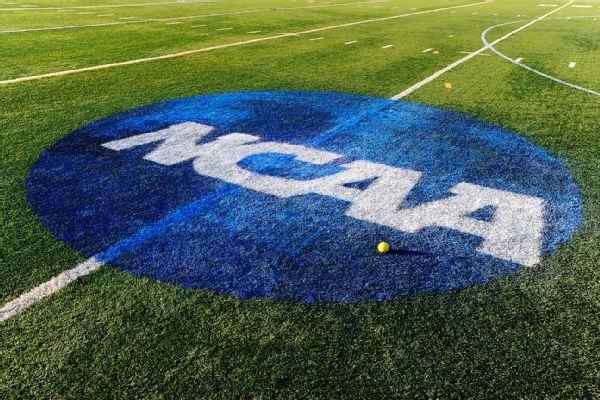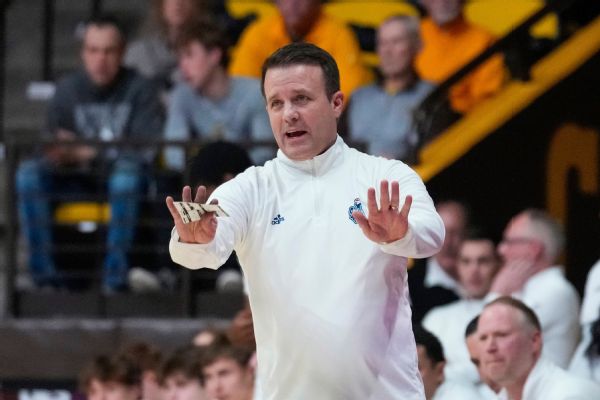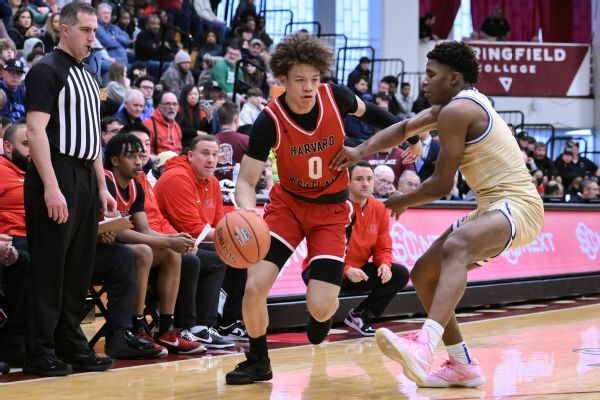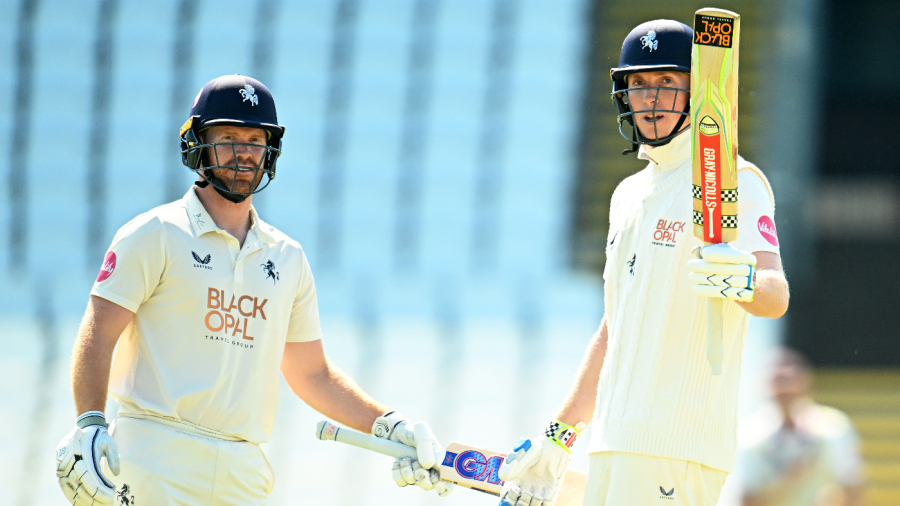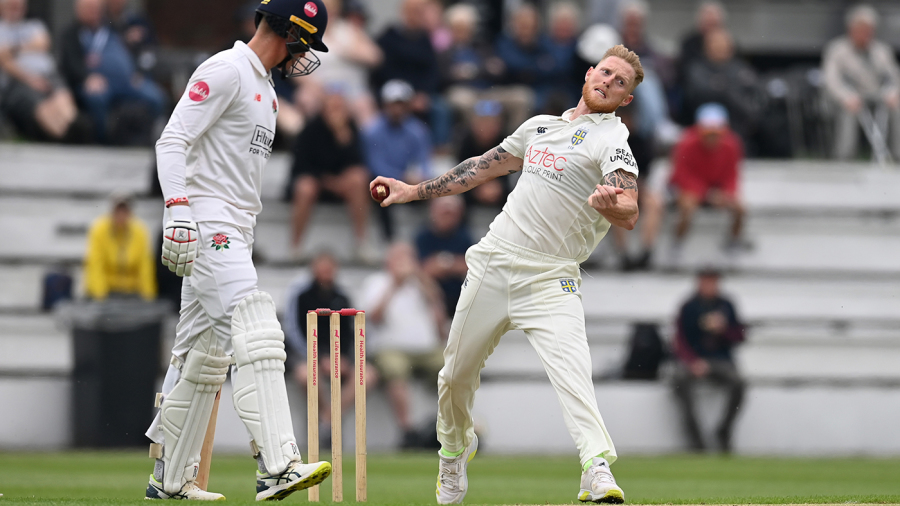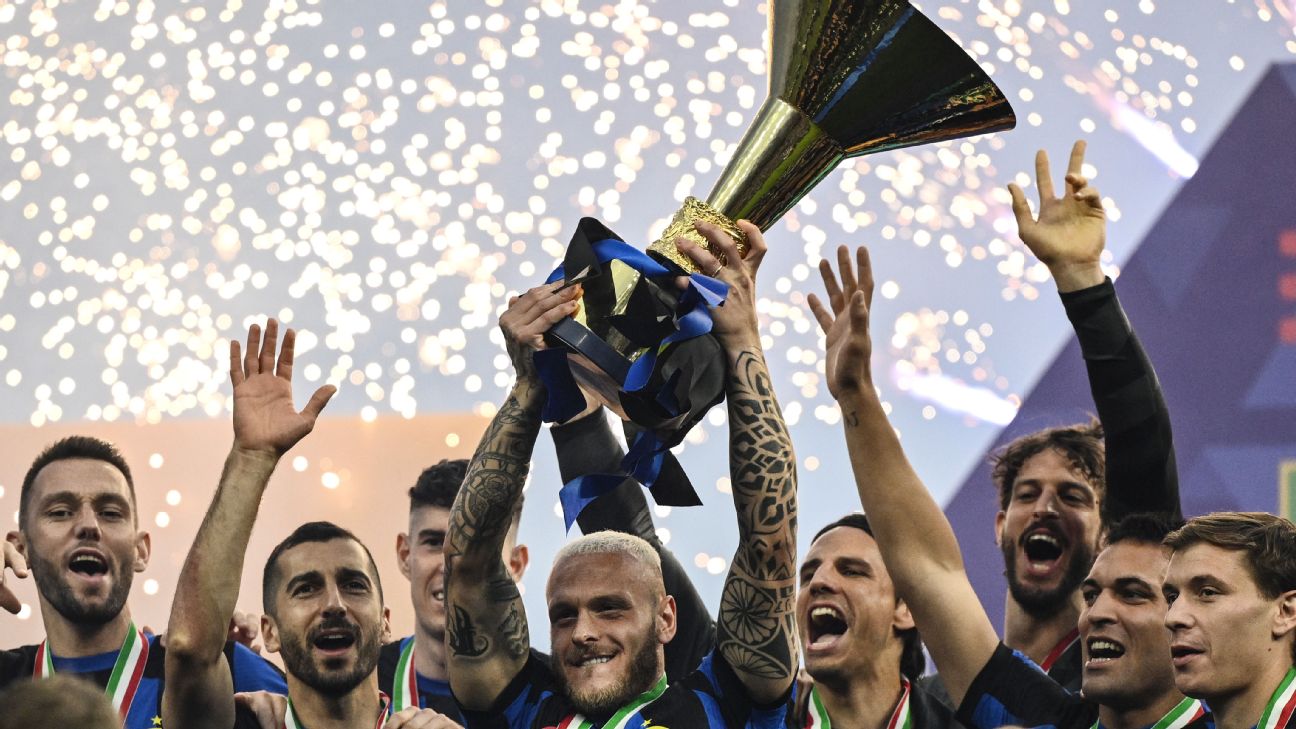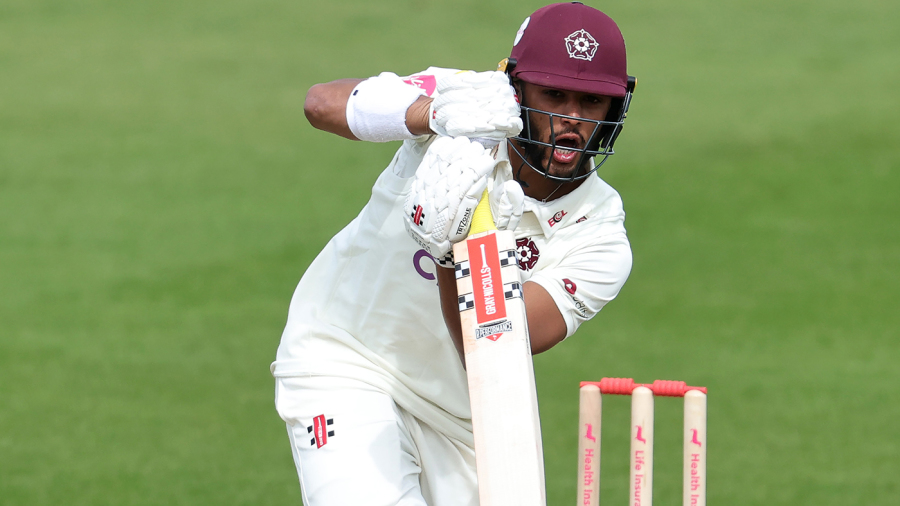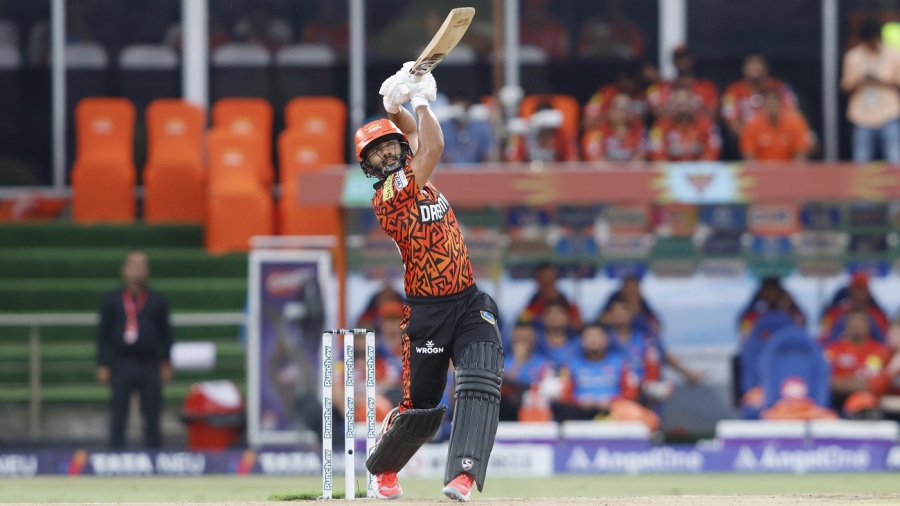![Pittsburgh Steelers running back Jaylen Warren (30) runs with the ball past Cleveland Browns linebacker Sione Takitaki (44) during the second half at Cleveland Browns Stadium. [608x342]](https://a.espncdn.com/photo/2024/0507/r1329758_3_608x342_16-9.jpg)
Jennings second hundred trumps Stokes five as Lancashire home in on victory
The decisions every team makes during the NFL draft have an obvious impact on their rosters. They also affect the players who were already a part of the organization. While veteran players might not be grinding college tape or mock drafts in the weeks before the big event, anyone who doesn't have a guaranteed path to a starting job is at least paying some attention to what happens when their team goes on the podium. New additions to the roster are competition, and the majority of the league's players are one training camp battle away from potentially being released.
Of course, as we saw in one conspicuous case during the top 10 picks, players who are guaranteed nine figures and promised a starting role can't even be sure they won't be blindsided by a move their team makes. You can probably guess where that player stands in this look at veteran players who were affected by what happened during the draft. I'll be sorting 16 of them into winners and losers by virtue of what the draft did to their chances of making an impact in 2024.
Subscribe: "The Bill Barnwell Show"
Why is this column coming out now as opposed to in the days after the draft? There's a secondary element that comes in the first few days post-draft that impacts team-building. We see teams that missed out on players at a given position take the plunge and immediately land a free agent who otherwise wouldn't have been on their roster, while teams that filled a hole or landed a player they weren't expecting to add act accordingly by cutting a veteran or two. I wanted to let that dust settle before evaluating what the draft-day moves meant for league veterans, both on and off rosters.
Let's start with a player who has unexpected competition for his role before ever taking a snap in his new uniform:
Jump to a section: Brandon Aiyuk | Rashod Bateman Kirk Cousins | Ezekiel Elliott Tytus Howard | Braxton Jones | Daniel Jones Ernest Jones | Zay Jones | Gardner Minshew Jaelan Phillips | Aaron Rodgers | Rasheed Walker Jaylen Warren | Jaylen Watson | Jameson Williams
Loser: Kirk Cousins, QB, FalconsWell, you can't say you're surprised. You don't need me to reiterate the shock that came when the Falcons drafted Michael Penix Jr. with the No. 8 pick, but imagine how it must have felt from Cousins' perspective. The new Atlanta quarterback reportedly didn't know the Falcons were considering Penix until the selection was made. The organization didn't even pursue Penix heavily, as the Washington quarterback didn't make a pre-draft visit to Atlanta. It is one of the most stunning top-10 picks in recent memory.
What might be more useful is laying out what could happen next. Cousins is guaranteed $100 million on the four-year deal he signed in March. He already has received a $50 million signing bonus. He has a $12.5 million base salary this year, a $27.5 million base salary next year and a $10 million roster bonus in 2026 that guarantees if he's on the 2025 roster. As long as he wants to keep playing, he'll collect a minimum of $100 million for two years of work or $135 million for three years.
Will that all be with the Falcons? First and foremost, that's up to Cousins. He has a full no-trade clause, which means he can force the franchise to pay him that $100 million over two years before moving on to Penix for the 2026 season. Naturally, while Cousins might not want to move on to another city after just landing in Atlanta, the veteran might also not want to sit in 2025 behind Penix if the Falcons are ready to move on and there's an exciting opportunity available elsewhere.
Could the Falcons move on after one year? Yes, although it would be more complicated. If Cousins agrees to a trade, it would be easy; Atlanta would actually save $2.5 million as part of that deal, and while it would have paid him $62.5 million for one year of work, it wouldn't be on the hook for the remaining $37.5 million in guarantees. The Falcons would have $37.5 million in dead money on their cap, but we've seen teams grown more comfortable eating that sort of dead money if they're ready to move on from a quarterback.
Cutting Cousins after 2024 would be more difficult to swallow, especially from the financial side. The Falcons would be on the hook for $27.5 million guaranteed in 2025 and basically be paying him to play for the minimum elsewhere, as Russell Wilson is now doing in Pittsburgh. They would get out of the $10 million commitment for 2026, but in addition to spreading $65 million in dead money over two years, they would have paid Cousins $90 million for one year of football as a lame-duck signal-caller. That couldn't have been their plan when they signed him.
Projecting potential landing spots a year in advance is a tricky game to play, but the obvious one appears to be off the board. There were always rumors of Cousins reuniting with Kyle Shanahan in San Francisco, but the 49ers appear to have found their quarterback of the future in Brock Purdy, who will be eligible for an extension next offseason. The 49ers could theoretically try to stay with lower-cost options at quarterback and continue to pay a premium for their playmakers, but it's more likely they sign Purdy to an extension and cut back elsewhere. Cousins wouldn't make sense on a veteran deal unless he either takes a massive pay cut and/or something happens to Purdy this season.
Otherwise, the other potential landing spots appear to be with the Raiders, Steelers and Titans, none of whom have a settled quarterback of the future. The Giants, Jets, Saints, Seahawks and even the Dolphins could also be in the market for a veteran starter. If Cousins plays well in 2024 and both he and the Falcons want to split, there will be a market for him next year. Next time around, Cousins might just want to try to get his new organization to promise it won't draft a quarterback immediately after acquiring him.
Winner: Daniel Jones, QB, GiantsI just mentioned the Giants as a potential starting job up for grabs next offseason, and that would involve moving on from Jones, who has no fully guaranteed money remaining on his deal after this season. While there were rumors the Giants were interested in moving up from No. 6 overall to take Drake Maye or J.J. McCarthy, general manager Joe Schoen & Co. stayed put and didn't draft a quarterback, clearing a path for Jones to start ahead of Drew Lock in 2024.
In addition, the Giants made their biggest investment yet at receiver by using their top pick on wideout Malik Nabers. While the various regimes running this team over the past few years have used both significant draft capital (Evan Engram, Wan'Dale Robinson, Kadarius Toney) and free agent money (Kenny Golladay) on various receivers, none of those moves has produced a top receiver. Jones' best work came with replacement-level options Isaiah Hodgins and Richie James in starting roles at the end of the 2022 season. Nabers profiles as a difference-maker and the most valuable receiver the Giants have had since Odell Beckham Jr.'s peak.
The one downside, perhaps, is New York didn't make the other move it was considering at No. 6. ESPN's Adam Schefter reported the organization had hoped tackle Joe Alt would fall, only for the Notre Dame player to come off the board at No. 5 to the Chargers. The Giants didn't end up using any of their draft picks on offensive linemen.
If the Giants were considering Alt, that raises serious questions about the future of 2022 seventh overall pick Evan Neal, who was Schoen's first selection as general manager. Neal has struggled mightily in his first two seasons, and the Giants signed former Raiders right tackle Jermaine Eluemunor in free agency. It wouldn't be a surprise if the Giants kept Eluemunor outside and kicked Neal inside, potentially to play left guard. Doing so might upgrade two spots in one for Jones.
While I mentioned Jones doesn't have any fully guaranteed money left on his deal after 2024, there is $23 million in injury guarantees on the books for him in 2025. What that means is the Giants would have to pay him that figure if he suffers an injury and is unable to pass a physical. Given Jones' injury history, including multiple neck issues, there's a real concern they might be on the hook for that figure if he suffers another injury. With that being the case, if the Giants get off to a slow start and fall out of playoff contention, don't be surprised if they shut down Jones in the second half of the season to avoid triggering that guarantee, just as the Raiders did with Derek Carr and the Broncos did with Russell Wilson during the past two seasons.
Winner: Ezekiel Elliott, RB, CowboysLet's stick in the NFC East and pick a winner who wasn't even on a roster during the NFL draft. Despite being linked to several running backs across many multiday mock drafts, the Cowboys didn't use any of their eight picks on a back. They left draft weekend the same way they entered it: with Rico Dowdle and Deuce Vaughn leading their depth chart. While team owner Jerry Jones suggested Dallas is all-in this offseason, that sentiment doesn't appear to have extended to the backfield.
Enter Elliott, who then returned to the Cowboys on a one-year, $2 million deal after a year away with the Patriots. Nothing about Elliott's game has changed from the player who hit the market as a cap casualty a year ago. He's a smart, experienced back who can be a valuable contributor as a pass protector. He's also painfully slow and should rarely be used on runs designed to bounce outside the tackles. Elliott's minus-219 rush yards over expectation (RYOE) on runs outside the tackles over the past three years ranks last in the league by 55 yards.
The Cowboys might see another role for Elliott: goal-line back. One of the places in which his absence was felt last season was in short-yardage, with Tony Pollard struggling to assert himself between the tackles. Dallas dropped from first in red zone touchdown rate in 2022 to 14th without Elliott last season, and its 64.1% conversion rate in goal-to-go situations ranked 26th in the league. I wouldn't count on Elliott getting featured-back status again -- and the Cowboys could still add a running back between now and the start of the season -- but Elliott could be in for a Gus Edwards-style usage pattern in this reunion.
Winner: Braxton Jones, OT, BearsOne of the big questions involving the top 10 picks revolved around what the Bears would do with their second first-round pick. In the end, they passed on help at edge rusher and a potential offensive lineman to draft Rome Odunze, giving their new quarterback another standout wide receiver to join Keenan Allen and DJ Moore. With Allen entering the final year of his deal, Odunze projects as Chicago's third wideout in 2023 before moving into two-wideout sets next season.
Passing on top tackles Olu Fashanu and Amarius Mims at No. 9 seems to keep the door open at left tackle for Jones, who has battled bravely since being drafted in the fifth round in 2022. Most teams won't countenance playing such an unheralded player on the blindside of their quarterback, but the Bears really had no choice in 2022. Jones missed six games last season but he apparently did enough to earn the starting job again in 2024.
With quarterback Caleb Williams in the fold, the stakes are higher. GM Ryan Poles used a third-round pick on tackle Kiran Amegadjie, but the 22-year-old is seen as a project who probably won't be ready to start as a rookie. Jones is eligible for an extension in 2025, so if he holds down the fort and protects Williams this season, he should be in line to get paid north of $20 million per year on his next deal, either by the Bears or another team.
Loser: Rasheed Walker, OT, PackersElsewhere in the NFC North, another tackle might have been blocked on his path to franchise tackle money. After playing just four special teams snaps as a rookie in 2022, Walker took over last September for the injured David Bakhtiari and locked down the left tackle spot for the NFL's youngest team, helping push Jordan Love and the Packers into the postseason. By the end of the season, Walker looked like he might have locked down the position in Green Bay for years to come.
Then the draft came. The Packers used three picks on offensive linemen, including first-round selection Jordan Morgan, who started 37 games at left tackle for Arizona. Bakhtiari is gone, but there's suddenly competition up front for Walker as he tries to play his way to a second contract.
There are several ways this could go. Morgan could kick inside to play right guard and replace Jon Runyan, who signed with the Giants. Right tackle Zach Tom could move to center and take over for Josh Myers, which would open up a starting tackle spot for either Morgan or Walker. The Packers could also keep Myers at center and Tom at right tackle and have a battle between Morgan and Walker for the left tackle spot, one that's always going to favor a first-round pick over a player who was chosen 249th. Walker proved he can play a year ago, but now, he might have to prove he can beat highly drafted competition.
Winner: Jameson Williams, WR, LionsFirst-round picks always get more opportunities to hold onto their jobs, which plays into Williams' favor. Lions GM Brad Holmes traded up to grab Williams in Round 1 of the 2022 draft knowing a left ACL injury would keep the wideout sidelined for most of his rookie year. Williams had one catch on nine targets in 2022. Poised for a breakout sophomore campaign, he was suspended for violating the league's gambling policy to start the season, missing the first five games.
Williams struggled to make his mark afterward. Moved into the starting lineup in Week 7, he averaged 1.4 yards per route run from that point forward, which ranked 85th in the league. He has yet to top 70 receiving yards in a game and had just 79 yards across Detroit's three playoff games, although he did add a 42-yard touchdown on a running play early against the 49ers.
Williams is still fast. His average maximum speed on routes was 15.9 mph last season, a figure topped only by Tre Tucker of the Raiders. His usage rate over the past two seasons has pointed toward a limited role as a downfield target, which would be a waste given his college tape and the draft capital used to acquire him, but there's an opportunity here.
The Lions lost Josh Reynolds to the Broncos in free agency and didn't replace Reynolds during the draft. Williams played about two-thirds of the snaps during Detroit's postseason run, and he could see the field even more often in 2024. This is a make-or-break year for him, but he'll have a clear path to starting work.
Loser: Brandon Aiyuk, WR, 49ersA weekend that might have provided certainty toward Aiyuk's future ended with things being even cloudier. Amid reports the 49ers were shopping both Aiyuk and fellow wide receiver Deebo Samuel during the first round in the hopes of moving up the board, no trade was consummated. Aiyuk also wasn't dealt during Day 2.
Furthermore, when the 49ers did make their first-round pick, it was surprisingly on a wide receiver in Ricky Pearsall, who crossed paths with Aiyuk when the two were at Arizona State. Aiyuk might be delighted to link up with a former teammate, but in the short term, adding another first-round pick to an already-crowded group of playmakers only makes it harder for Aiyuk to repeat his breakout 1,342-yard season from a year ago.
Pearsall might not be a direct replacement for Aiyuk in the short term, but his presence could indicate San Francisco expects to move on from one of its wideouts sooner rather than later.
Winner: Ernest Jones, LB, RamsEverybody on the Rams defense is going to need to deal with a new paradigm this offseason. Life is just different without Aaron Donald. Jones, as an example, has played just under 75% of his defensive snaps as a pro with the future Hall of Famer on the field. While Donald's gravity created opportunities for pass-rushers such as Dante Fowler Jr., Leonard Floyd and Byron Young to win one-on-ones over the years, the threat of the defensive tackle penetrating into the backfield also gave guards nightmares, helping to keep them off Jones.
In a contract year, Jones undoubtedly wanted the Rams to add help in front of him on the line of scrimmage. The mission was expensive, but it was accomplished. GM Les Snead & Co. used their first-round pick on edge rusher Jared Verse, then traded up in the second round to nab tackle Braden Fiske. They should see regular snaps alongside Young and fellow second-year standout Kobie Turner as the new sub-package front for the Rams. And while it won't be playing alongside a future Hall of Famer, that should make life easier for Jones than it looked before draft weekend.
Winner: Aaron Rodgers, QB, JetsWhile Cousins might have been hoping for a draft that built the best possible team around him as the veteran quarterback tries to win a title, the Jets actually pursued that goal while being all-in around Rodgers. After signing wideout Mike Williams and acquiring offensive linemen Tyron Smith, Morgan Moses and John Simpson in the offseason, New York appears to be surrounding Rodgers with legitimate NFL talent as opposed to friends who might accompany the future Hall of Famer to Knicks games, as was the case last offseason.
GM Joe Douglas oversaw a team that broke down because of injuries and lack of depth last season, and while the roster might have looked done on offense on paper, he wisely continued to go after more talent on offense. He moved down one spot in Round 1 and still landed tackle Olu Fashanu, who offers the Jets an immediate starter with the potential of growing into their left tackle of the future. With Smith sporting a significant injury history and unable to play more than 13 games in a season since 2015, New York needed to prioritize swing tackle. It can either start Fashanu in that role as a rookie or move Moses, who started at right tackle for the Ravens in 2023, into that third tackle spot while debuting Fashanu on the right side.
With their second-round pick off to the Packers in the Rodgers deal from last offseason, the Jets then moved up in Round 3 to take wideout Malachi Corley, who profiles as a younger version of Randall Cobb. The Jets needed a slot receiver, and Corley gives them a third option if they find a taker for Allen Lazard. The organization also added running back depth in Braelon Allen and Isaiah Davis before using a Day 3 pick on quarterback Jordan Travis, who shouldn't pressure Rodgers for the starting job if he wants to return in 2025.
During the draft, Douglas managed to amass more draft capital by trading down several times. While that might not feel like it helps the Jets in a season in which they want to build the best possible roster around Rodgers, adding extra players in the 2024 draft is a positive, not a negative. They also landed a 2025 third-round pick from the Lions, a pick that could come in handy at the trade deadline if New York looks like a contender. This team is in a much better place than it was a year ago.
Loser: Jaelan Phillips, EDGE, DolphinsIt has been a tough few months for Phillips, a film favorite who has perpetually looked on the verge of breaking out during his first three NFL seasons. In what was supposed to be a crowning 2023 campaign, he struggled with back and abdomen injuries early in the season. He came back and had sacks in five consecutive games, only for the 24-year-old to tear an Achilles late in a win over the Jets, ending his season after 367 total snaps.
After signing Shaquil Barrett to replace the departed Andrew Van Ginkel this offseason, the Dolphins doubled down on their pass rush by using a first-round pick on Chop Robinson. With Bradley Chubb locked up for the long term, the move likely squeezes Phillips' path toward a starting job and a significant extension with Miami. The franchise picked up his fifth-year option for 2025, guaranteeing him $13.2 million next year, but he was in line for a much bigger deal before the injury.
Winner: Rashod Bateman, WR, RavensThings have never really come together for Bateman, as the 2021 first-round pick has endured a stop-start career because of injuries. He has missed 17 games over his first three seasons, and though he was a starter for most of last season, he split time with Odell Beckham Jr. and Nelson Agholor as the second wideout for Lamar Jackson. After playing more than 80% of the snaps in each of Baltimore's final four games in 2021, Bateman has topped that figure once over the ensuing two seasons.
The Ravens have been surprisingly optimistic and sanguine about Bateman's chances of making an impact in 2024, however, as John Harbaugh has stated he expects the 24-year-old to take a big step forward next season. Harbaugh & Co. have followed that up with their moves during the offseason; they let Beckham leave for the Dolphins, and their only addition to the wide receiver rotation was fourth-round pick Devontez Walker, who might project as more of a downfield option than an immediate threat to start.
Bateman has every incentive to break through. In lieu of making a decision on his fifth-year option, the Ravens signed him to a two-year extension that basically paid him a $1.3 million bonus on top of the $2.7 million he was already guaranteed for 2024 for the right to pay him a total of $10.8 million across 2025 and 2026. That's a bargain for any sort of impactful receiver, and none of the money after 2024 is guaranteed, so the Ravens would be in line to extract significant value if he does break out. More realistically, a breakthrough season for Bateman would likely push them back to the negotiating table for a new extension.
Winner: Jaylen Warren, RB, SteelersIf you've watched the Steelers' offense closely over the past two seasons, you're likely owed the right to some sort of compensation. You've also probably noticed the offense looks much more explosive when Warren has been in the game at running back. While 2021 first-round pick Najee Harris has struggled for consistency and big plays, the undersized Warren has exhibited an ability to create something out of nothing. He has generated 170 rush yards over expectation over the past two seasons, 207 more than the highly touted Harris has produced with more than twice as many rush attempts. Warren also has become a highlight reel-caliber pass-protector in the backfield.
The Steelers responded by taking some much-needed steps to improve the blocking in front of Warren. After spending a league-low two top-100 picks on offensive linemen between 2013 and 2022, they used a first-round pick on Broderick Jones a year ago. They followed up this year by using their top two selections and four of their first six selections on offensive linemen, most notably nabbing Troy Fautanu and Zach Frazier in the first two rounds. Frazier profiles as the long-term replacement at center the Steelers have lacked since Maurkice Pouncey's retirement after the 2022 season, while Fautanu should take over at left tackle for Dan Moore.
Pittsburgh then declined Harris' fifth-year option, a move that shouldn't be surprising given that he has averaged 3.9 yards per carry as a pro. Harris has stayed healthy and hasn't been given much help, but he has been outplayed by Warren in the same lineups. Warren moved into a timeshare as the 2023 season went along, and he could push ahead of Harris for starting duties in 2024. If he does, the 5-foot-8 back should enjoy more help than he has had in previous years.
Loser: Tytus Howard, OT, TexansIn the modern NFL, what a player says and does on social media can make headlines or tell us how he's feeling about his status. Howard's X account isn't exactly subtle; in addition to promoting his Twitch stream, his biography makes his position on positions clear. The 2019 first-round pick says he's a "RIGHT TACKLE ONLY."
Howard's insistence on lining up at right tackle might date back to what happened last season, when he was very much not a tackle. He was sidelined to begin the season with a hand injury, and free agent addition George Fant impressed at right tackle in his absence. When Howard returned to the lineup, he was moved to left guard, where 2022 first-rounder Kenyon Green was out for the season. He played seven games at guard before going down with his own season-ending knee injury.
Fant left the organization this offseason, which appeared to clear things out; Howard would move back to his desired position at right tackle, Green would step back in at guard and the Texans would be set in front of C.J. Stroud. Then GM Nick Caserio used a second-round pick on lineman Blake Fisher, who spent the majority of his college career playing ... right tackle. Uh oh.
Fisher could begin as Houston's swing tackle behind Howard and Laremy Tunsil, but the writing is on the wall here. Howard has $1.8 million of his $15.5 million base salary in 2025 guaranteed, and the team is presumably set at guard with Green and Shaq Mason. Green struggled mightily as a rookie, but it's also clear Howard doesn't intend to move to the interior on a permanent basis. He should begin the season as the starter at his preferred position in 2024, but he'll be playing for his job.
Loser: Zay Jones, WR, Free agentYou can probably guess why Jones is on this side of the ledger by the fact he's now a free agent. The Jags used their first-round pick on wide receiver Brian Thomas Jr., which seemed to squeeze Jones out of their three-wideout alignments. It wasn't much of a surprise when the Jags cut Jones after the draft, saving up to $7.7 million in cash in the process.
Hitting the open market after the draft isn't ideal. Teams have already attempted to plug their holes at wide receiver in free agency and then during draft weekend, meaning there aren't many opportunities left. There's also not much cash left to spend in budgets, so players are often left taking significant pay cuts. The two-year, $26 million deal DeAndre Hopkins signed last year after being cut in May is the exception as opposed to the rule.
Jones isn't Hopkins, but after being virtually unplayable earlier in his career with the Bills, he has managed to mold himself into a viable NFL receiver. He still has issues with drops and wasn't great a year ago, but he was an effective wideout for the Raiders at the end of 2021 and into his first year with the Jaguars in 2022. He could help teams such as the Lions and Saints, but his first visit after being released was to the Titans, where he would probably be competing for Treylon Burks for the third wideout role.
Winner: Jaylen Watson, CB, ChiefsThe Chiefs were never going to land a direct replacement for L'Jarius Sneed, whose physicality and comfort taking the other team's top receiver in man coverage made the now-Titans cornerback a unique proposition. It seemed likely Kansas City would go after a replacement for Sneed in the draft, though, allowing defensive coordinator Steve Spagnuolo more latitude to run the sort of blitz-happy scheme that excelled for his team in its run to back-to-back Super Bowls over the past two seasons.
Instead, the Chiefs didn't draft a cornerback until Kamal Hadden in Round 6. They used a fourth-round pick on safety Jaden Hicks, who should step in for Mike Edwards as the third safety when they want to work out of big nickel looks, but the cornerback spots on the depth chart behind standout Trent McDuffie are still mostly up for grabs.
That's an opportunity for Watson, who has flashed in stretches of solid play without ever emerging as a regular starter for Kansas City. He allowed a 103.6 passer rating in coverage a year ago, but that was also while playing through a torn labrum he suffered in September. Watson is competing with 2022 fourth-rounder Joshua Williams -- and the Chiefs could still add a veteran such as Xavien Howard or Adoree' Jackson in free agency -- but there's an opportunity for him to take a step forward and win a starting job. With him becoming eligible for an extension after 2024, this would be an ideal season for Watson to put things together and become a regular starter.
Winner: Gardner Minshew, QB, RaidersWhen the carousel of teams interested in quarterbacks in the draft came to a halt, perhaps the only team reportedly interested in landing a signal-caller that didn't actually land one was the Raiders. They weren't able to trade up from No. 13 overall for Michael Penix Jr. or J.J. McCarthy, and when the Broncos drafted Bo Nix just ahead of them, they were taken off the quarterback board.
Instead, the Raiders made significant investments in their supporting cast on offense. Tom Telesco surprisingly used his first pick as the Las Vegas GM on tight end Brock Bowers, making the Raiders the first team to use picks on tight ends in the top two rounds in back-to-back drafts since they did the same thing just over 20 years ago. Telesco used second- and third-round picks on offensive linemen Jackson Powers-Johnson and Delmar Glaze, then added running back Dylan Laube in Round 6.
On top of their class, the Raiders have been active in adding talent in the post-draft market. After the calendar turned to May, they signed Michael Gallup and former Chargers wideout Jalen Guyton to one-year deals, adding depth at receiver behind starters Davante Adams and Jakobi Meyers. They also brought in former Saints utility lineman Andrus Peat, who spent most of the year starting for the Saints at left tackle. He won't play there with Kolton Miller in the lineup, but Peat should compete for a starting job at guard or at right tackle while giving Vegas useful depth up front.
All of this benefits Minshew, who is likely to win a competition with Aidan O'Connell for the starting job. Minshew would have been cast in the bridge quarterback role if the Raiders had selected a quarterback in the first round, but their failure to land a passer of the future and the depth added up front should be a boon to his chances of playing -- and playing well -- in 2024.


